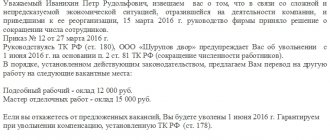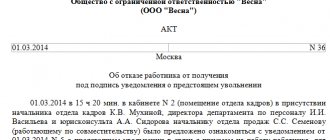In 2021, new rules regulating the actions of a notary when revoking a power of attorney came into force. Legislators have determined an effective and convenient mechanism by which the principal can terminate the powers of proxies as quickly as possible. This may be required if doubts arise about their integrity, when the organizational structure of the enterprise changes, and in any other situations when a previously issued power of attorney no longer meets the interests of the principal.
When is a power of attorney revoked?
The need to revoke a power of attorney to represent interests arises in a variety of cases:
- Execution of the actions for which it was issued;
- A situation arises when the trustee can no longer act in the interests of the principal;
- Unfair behavior of a trusted person;
- The wish of the principal.
The law does not contain any restrictions on the possibility of revoking a power of attorney. For this, only the desire of the person who issued it is sufficient. Moreover, revocation is possible at any time: from the moment of issuance until the expiration of the power of attorney.
From a commercial point of view, it is necessary to cancel a power of attorney in all cases when the employee for whom it was issued is fired or transferred to another position where additional powers are not required. For example, if a person no longer works as a cashier for an enterprise, then there is no need to maintain the power of attorney to withdraw cash from the LLC's current account.
Important: the validity period of powers of attorney, as well as control over their cancellation, is an important element of business protection. Russian business practice knows many examples when a raider takeover of a company began with a power of attorney that was not revoked in time.
How to send a notice?
There are several ways to give notice to an attorney.
IMPORTANT. Regardless of the method of sending, the person who received this notification must sign that he is aware of the cancellation of the power of attorney, and also return it to the principal.
Methods
- Through a personal meeting, that is, a representative of the organization or individual who issued the power of attorney personally provides notice to the attorney.
- Sending by registered mail - in this case, the notice is sent to the address of the person’s actual residence.
If the principal does not have information about the attorney's current place of residence, then the notice should be sent to the last known address. - Sending through a notary – as a rule, this method is used in the case of a revocation drawn up in notarial form.
- Publication of the revocation of the power of attorney.
In accordance with Art. 189 of the Civil Code of the Russian Federation, publication can be carried out as follows:
- the revocation in notarial form is entered into a special database of notarial actions, which anyone can access via the Internet (read more about how to revoke a power of attorney and how much it costs from a notary public here);
- if the review is in the usual written form, then information about it is covered in the official publication where data on bankruptcy is published (For example, the Kommersant newspaper).
You should know that in this case, the signature on the notification must be certified by a notary.
REFERENCE. In the case of a notarized revocation of a power of attorney, the attorney is considered notified the next day after publication, and in the case of a simple form of notification - 1 month later.
A general power of attorney provides the trustee with great powers in terms of representing the rights of his principal and provides for the widest range of possible actions. How you can cancel or revoke this document and its standard form - read on our website.
Deadlines
The legislation does not provide clear guidance as to when exactly notice must be given. However, it can be assumed that in the event of early revocation of the power of attorney, it is in the interests of the principal to receive the issued document as soon as possible.
In addition, to avoid fraud or misunderstanding, third parties should also be notified of the revocation as soon as possible. From this it follows that the notice should be sent immediately after the issuance of an order to revoke the power of attorney. Thus, notice of revocation is not a mere formality, but an important legally significant action.
It is after notification of all interested parties about the termination of the power of attorney that it becomes invalid.
How to revoke a power of attorney?
Cancellation of a power of attorney is quite simple - you need to prepare a notice of its revocation and send this document to the authorized person, as well as to other persons affected by the powers in the power of attorney. Notice of cancellation is always made in writing and handed over to the principal against signature. If it is not possible to deliver the notice in person, then it is sent by registered mail to the address specified in the power of attorney.
From the moment of notification, the trustee is obliged to transfer the power of attorney to the principal, otherwise the principal has the right to contact law enforcement agencies with a statement that all transactions performed after the date of notification are invalid, and the actions of the former trustee show signs of a crime - fraud.
It is important to know! A catalog of franchises has opened on our website! Go to catalog...
It should be remembered that notifying the authorized person about the revocation of the power of attorney is the responsibility of the citizen. And if he did not properly notify of the revocation, then all actions performed by the trustee will be considered legitimate (regardless of the fact that by this time a notice of revocation had already been written). For example, the head of the company decided to revoke the power of attorney from the supply manager; the secretary prepared a notice, but did not give it to the manager. The next day, the manager entered into an agreement for transport services for the transportation of goods with a new contractor, ordered transportation and signed a certificate of services rendered. The company will be forced to pay for the services under the act, since the manager did not know that his power of attorney to sign documents had been revoked.
Notification of the revocation of a power of attorney may also be given orally, but provided that it is done personally by the principal and personally to the authorized person. In this case, the authorized person must immediately transfer the power of attorney and issue a receipt that he has been notified of the revocation of the power of attorney. The receipt must indicate the details of the parties, as well as the date and exact time of the revocation. The latter is necessary in case of challenging transactions.
For example, the power of attorney was revoked on December 5, 2021 at 15:20 local time, which was reflected in the trustee’s receipt. On the same day, he signed acts under a subcontract agreement for the provision of services, under which the principal had to pay the subcontractor a significant amount of money. The principal refused to pay, citing the fact that the principal no longer had the authority to sign documents. During the trial, it was established that the signing of acts for payment took place in the period from 10:00 to 11:00, that is, at a time when the trustee did not know and could not know that the power of attorney would be terminated. The court took this circumstance into account, recognized the actions taken by the trustee before 15:20 as legal and ordered the trustee to pay for the services of the subcontractor.
Notification of third parties can be carried out by publishing about the revocation of the power of attorney in print media, as well as by sending registered letters to all interested parties.
Advice: You should always check the authenticity of the power of attorney presented to you. If this is a notarized document, then this can be done through a specialized online service. Ordinary powers of attorney can be checked with the persons who issued them, or you can ask the attorney to present additional documents, for example, a copy of the principal’s passport.
1.6. Termination of power of attorney
In accordance with paragraph 1 of Art. 188 of the Civil Code of the Russian Federation, the grounds for termination of a power of attorney are :
1) Expiration of the power of attorney.
2) Cancellation of the power of attorney by the represented . The person who issued the power of attorney may cancel it at any time (clause 2 of Article 188 of the Civil Code of the Russian Federation), with the exception of an irrevocable power of attorney , for which the law establishes special cases of its cancellation (Article 188.1 of the Civil Code of the Russian Federation). If the power of attorney was issued jointly, then any of the represented persons has the right to revoke its validity. If the remaining persons who issued the joint power of attorney wish to retain the powers of the representative, a new power of attorney must be issued. Moreover, if a power of attorney was issued to several representatives, and there is no express clause on joint representation, the cancellation by the represented of the powers of the representative entails the termination of the power of attorney only in relation to the specified representative. If, according to the terms of the power of attorney, the powers must be exercised jointly, the cancellation of the power of attorney in relation to one representative also entails the termination of the power of attorney only in relation to him (clause 126 of the Resolution of the Plenum of the Supreme Court of the Russian Federation dated June 23, 2015 No. 25).
3) Refusal of the representative's authority . The representative has the right at any time to renounce powers under a power of attorney (Clause 2 of Article 188 of the Civil Code of the Russian Federation). If a power of attorney was issued to several representatives with the right to exercise powers separately, if one of them refuses, the power of attorney is terminated only in relation to the representative who refused the powers. If, according to the terms of the power of attorney, the powers must be exercised jointly, the refusal of one of the representatives entails the termination of the power of attorney as a whole (clause 126 of the Resolution of the Plenum of the Supreme Court of the Russian Federation dated June 23, 2015 No. 25).
4) Termination of a legal entity on whose behalf or to which a power of attorney was issued, including as a result of its reorganization in the form of division, merger or merger with another legal entity.
5) Death of the person being represented , recognition of him as incompetent , partially capable or missing .
6) Death of a representative , recognition of him as incompetent, partially capable or missing.
7) Introduction bankruptcy procedure in relation to the represented or representative , in which the corresponding person loses the right to independently issue powers of attorney. A power of attorney issued jointly by several represented persons or providing for the joint exercise of powers by several representatives (in case of sub-assignment) shall cease to be valid if a bankruptcy procedure is introduced in relation to one of the represented persons or representatives, in which the corresponding person loses the right to independently issue powers of attorney. In accordance with paragraph 1 of Art. 94, paragraph 2 of Art. 126 of the Federal Law of October 26, 2002 No. 127-FZ “On Insolvency (Bankruptcy)” (hereinafter referred to as the Bankruptcy Law), the powers of the head of the debtor are terminated from the date of introduction of external management, and with the opening of bankruptcy proceedings the powers of both the head of the debtor and other bodies are terminated management of the debtor and the owner of the debtor's property - a unitary enterprise (except for the powers of the general meeting of participants of the debtor, the owner of the debtor's property to make decisions on concluding agreements on the conditions for the provision of funds by a third party or third parties for the fulfillment of the debtor's obligations), in connection with which the validity of powers of attorney issued by the indicated persons to represent the interests of the debtor, is terminated (clause 7, clause 1, article 188 of the Civil Code of the Russian Federation). On the same basis, powers of attorney issued to an external and bankruptcy manager of the debtor are subject to termination when such a manager is relieved (suspended) from performing duties (clause 130 of the Resolution of the Plenum of the Supreme Court of the Russian Federation dated June 23, 2015 No. 25).
According to paragraph 3 of Art. the sub-power of attorney loses its force . At the same time, a power of attorney issued by way of substitution can also be canceled by the person represented by the main power of attorney without canceling the main (initial) power of attorney (Clause 2 of Article 188 of the Civil Code of the Russian Federation).
It is necessary to cancel that in accordance with paragraph 1 of Art. 188 of the Civil Code of the Russian Federation, the cancellation of a power of attorney is carried out in the same form in which the power of attorney was issued, or in notarial form.
The law imposes on the represented person, who has canceled the power of attorney, the obligation to notify the representative of its cancellation, as well as third parties known to him, for whose representation the power of attorney was issued. The same obligation is imposed on the legal successors of the representative-citizen in the event of his death, recognition of his incapacity, limited legal capacity or missing, as well as on the legal successors of the representative-legal entity in the event of termination of his activities, including as a result of reorganization in the form of division, merger or merger with another legal entity (paragraph 1, clause 1, article 189 of the Civil Code of the Russian Federation).
If the power of attorney is made in notarial form, then in accordance with the requirements of paragraph 1 of Art. 188 of the Civil Code of the Russian Federation, its cancellation is also subject to notarization. When canceling a power of attorney, the notary enters information about this in the register of powers of attorney . The information contained in this register is provided by the Federal Notary Chamber to an unlimited number of persons using the Internet information and telecommunications network (paragraph 2, clause 1, article 189 of the Civil Code of the Russian Federation). If third parties were not notified of the revocation of the power of attorney earlier, they are considered notified the next day after the notary enters information about this in the register of powers of attorney (paragraph 4, paragraph 1, article 189 of the Civil Code of the Russian Federation).
If the power of attorney is made in simple written form, the represented person must independently notify the representative and third parties of its cancellation. In addition, information about the revocation of a power of attorney made in simple written form may be published in the official publication in which information about bankruptcy is published. In this case, the signature on the application to revoke the power of attorney must be notarized (paragraph 2, paragraph 1, article 189 of the Civil Code of the Russian Federation). If third parties were not notified of the cancellation of the power of attorney earlier, they are considered notified after one month from the date of publication of such information in the official publication in which information about bankruptcy is published (paragraph 4, paragraph 1, article 189 of the Civil Code of the Russian Federation). The Kommersant newspaper is designated as the official publication that publishes information provided for by the Bankruptcy Law (clause 1 of Order of the Government of the Russian Federation dated July 21, 2008 No. 1049-r). At the same time, the use of this procedure without simultaneous notification of the representative and third parties known to the represented about the cancellation of the power of attorney in simple written form is not allowed in cases where the power of attorney was issued to carry out a transaction with a specific counterparty (clause 132 of the Resolution of the Plenum of the Supreme Court of the Russian Federation dated June 23. 2015 No. 25).
At the same time, according to paragraph 2 of Art. 189 of the Civil Code of the Russian Federation, if a third party is presented with a power of attorney, the termination of which he did not know and should not have known, the rights and obligations acquired as a result of the action of the representative whose powers have been terminated remain valid for the represented person and his legal successors.
Upon termination of the power of attorney, the representative or his successors are obliged to immediately return the power of attorney (clause 3 of Article 189 of the Civil Code of the Russian Federation).
written authority granted by one person to another person to enter into a transaction with a third party; an official authorized by the state who has the right to perform notarial acts on behalf of the Russian Federation in the interests of Russian citizens and organizations (legal entities). persons defending their rights in a civil dispute and protected by law interests. Third parties are not the initiators of the claim; it is initiated by the parties. In this connection, a distinction is made between third parties who make independent claims on the subject of the dispute and those who do not make such claims. Third parties filing independent claims enter into the initiated civil process, bringing a claim on a general basis against both parties to the process or against one of them. Third parties who do not file independent claims enter into civil proceedings on the side of the plaintiff or defendant if the decision in the case may affect their rights or obligations.
How to revoke a power of attorney certified by a notary?
Revoking a power of attorney certified by a notary is no more difficult than a simple one. To do this, you need to contact any notary with two documents:
- Passport;
- Revocation Notice.
You can prepare the notification yourself using the sample (or seek help from a lawyer). Next, you need to notify your authorized representative. You can do this yourself, or you can also do it through a notary. In the second case, the notary himself notifies the trustee, takes the power of attorney from him and transfers it to the trustee.
It is possible to revoke a notarized power of attorney in a different manner. First, send a notification to your authorized representative, obtain from him a receipt of receipt and the document itself. And after that, submit all documents to a notary office. After checking all documents for compliance with regulatory requirements, the notary will enter information about termination into a special register of powers of attorney.
Can a legal entity revoke a document?
The person who issued the power of attorney has the right to revoke it at any time (with the exception of irrevocable power of attorney) (Article 188.1 of the Civil Code of the Russian Federation). Moreover, in accordance with civil law, in the event of a revocation it is necessary to notify (Article 189 of the Civil Code of the Russian Federation):
- the representative for whom the document was issued;
- third parties for whose representation it was issued.
For example, if a power of attorney was issued to receive goods and materials from a supplier, then when it is revoked, he should also be notified.
IMPORTANT. You should know that until third parties are notified that the power of attorney has been revoked, it is valid for them, which gives them the right to release goods, materials, and also carry out other actions under it.
Read more about how to revoke a power of attorney certified by a notary here.
How is a power of attorney revoked?
The notary comments:
In accordance with Russian legislation, all types of powers of attorney are canceled by a notary. Even if the document itself was drawn up in simple written form and was not notarized, it can be canceled through a notary. The mechanism with sub-power of attorney also works in a similar way: the person who has delegated authority can revoke the sub-power of attorney from the notary.
The cancellation scheme looks like this:
- The citizen submits an application to the notary to revoke the power of attorney, which is accepted today.
- The notary accepts the application and verifies the authority of the applicant. If the authority is confirmed, the notary registers information about the revocation of the power of attorney in the Unified Information System (UIS).
- The authorized representatives are considered to have been notified of the cancellation of the power of attorney on the next business day after registration in the Unified Information System.
Further, when trying to perform any actions on the basis of a power of attorney that has been revoked, the proxies will be refused, since any notary or representative of government agencies must check the power of attorney via the Internet and will immediately find a completed order to revoke the power of attorney from the notary.
Please note that even if the power of attorney was issued to an indefinite number of persons, after information about its revocation is published on the Internet, all these persons are considered notified of the revocation.
What to do if unwanted actions were still committed?
In the event that the authorized person whose powers you want to revoke has nevertheless managed to perform actions under the revoked power of attorney, the only option left is the court. The notary issues a document that confirms the exact date and time of revocation of authority. Accordingly, by going to court, you can prove that at the time of performing the actions the person no longer had authority, and therefore all his actions will be declared void by the court. You can safely go to court, since existing judicial practice shows that courts are very willing to issue decisions on the nullity of transactions based on dubious powers of attorney.








